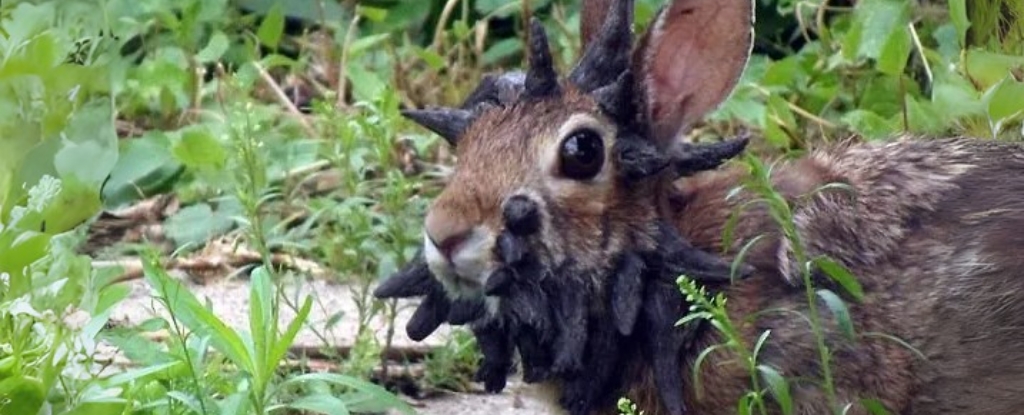Meet the Zombie Squirrel: Nature's Creepiest Critter Takes Over North America!

What would you do if you stumbled upon a creature that looked like it crawled straight out of a horror movie? Just days after the bizarre sighting of a ‘Frankenstein bunny’ in Colorado, reports are flooding in about another eerie animal in North America: the so-called 'zombie squirrel'.
Imagine walking through a park and seeing grey squirrels with bulging, hairless tumors. This unsettling vision has become a reality in states like Maine and parts of Canada, with social media ablaze with posts showcasing these peculiar rodents. Users have dubbed them 'zombie squirrels' due to their strikingly strange appearances, but what’s really going on here?
Wildlife experts offer a more scientific explanation: these wart-like growths are consistent with a condition known as squirrel fibromatosis. This viral infection belongs to the Leporipoxvirus genus, a family that also includes the notorious myxoma virus, which wreaks havoc on rabbit populations. Although it might sound alarming, experts stress that this condition is not as contagious as it appears.
It's easy to confuse squirrel fibromatosis with squirrelpox, another virus that can be deadly to red squirrels but is typically carried harmlessly by grey squirrels. As of now, wildlife professionals have yet to confirm if these sightings are indeed cases of fibromatosis or squirrelpox, although the latter is seen as less likely to spread across the U.S.
Despite its unsettling appearance, squirrel fibromatosis is a common skin disease for squirrels and is often non-lethal. The condition spreads through direct contact with infected squirrels or their lesions and saliva, usually occurring at feeding tables, or through biting insects like mosquitoes and fleas. The growths can appear anywhere on the squirrel's body but are most commonly found on their face and limbs. Thankfully, they typically regress on their own in a matter of weeks to months.
Shevenell Webb from Maine's Department of Inland Fisheries and Wildlife reassured local residents that encountering a 'zombie squirrel' poses little threat. Neither squirrel fibromatosis nor squirrelpox is believed to be transmissible to humans, pets, or birds. So, if you do happen to come across one of these peculiar critters, there’s no need to panic!
This strange phenomenon follows the viral reports of the 'Frankenstein bunnies' in Fort Collins, Colorado, which alarmed residents with odd black growths resembling horns protruding from their heads. Photos of these rabbits quickly captured the internet’s attention, prompting all sorts of comparisons to zombies, aliens, and the mythical Frankenstein creatures.
Colorado Parks and Wildlife officials attribute these oddities to shope papillomavirus, a rabbit-only virus that leads to wart-like tumors, particularly around the face and head. So while our animal friends may be looking a little different lately, experts remind us that, for the most part, they’re still safe to observe from a distance.



















